Marketers must recognise consumer perceptions around social responsibility have changed
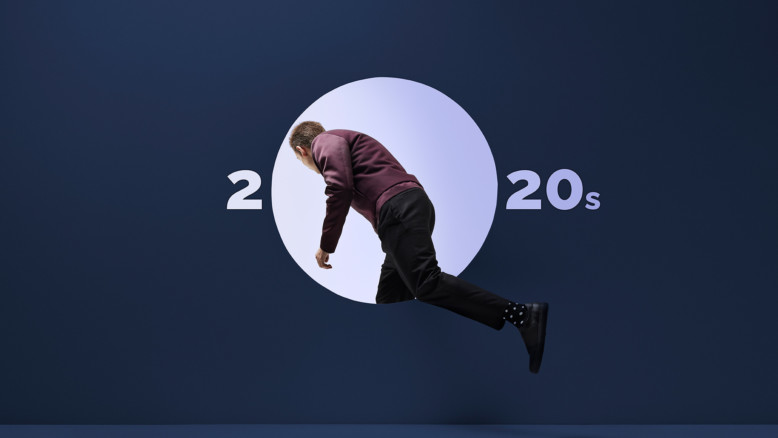
Marketers must recognise consumer perceptions around social responsibility have changed

Across multiple generations of Australians, COVID-19 has redefined consumer expectations of the brands they deal with, new research shows.
During a panel on the ‘Roaring 2020s’ at Nine’s Big Ideas Store this week, the room heard how new research by Powered by Nine and marketing research firm Fiftyfive5 showed that recent events surrounding COVID-19, where brands reacted swiftly to the pandemic, had shifted the lens in which many consumers view the brands they deal with.
“What came through so strongly in our research was people saying: ‘it’s not about what you say but it’s about understanding your role in my life and in the community as well and fulfill that’,” said Hannah Krijnen, Director at Fiftyfive5.
“I’ve been joking that in the past 12 months, all Australians have done a branding 101 course because the expectations and engagement are so much higher, than they have been. “Where two years ago we might talk to people who were (aged) 50+ and they were pretty happy if you spoke the right way (about issues) they were happy. But you can see the conversation shifting and suddenly they have seen brands do more than talk.
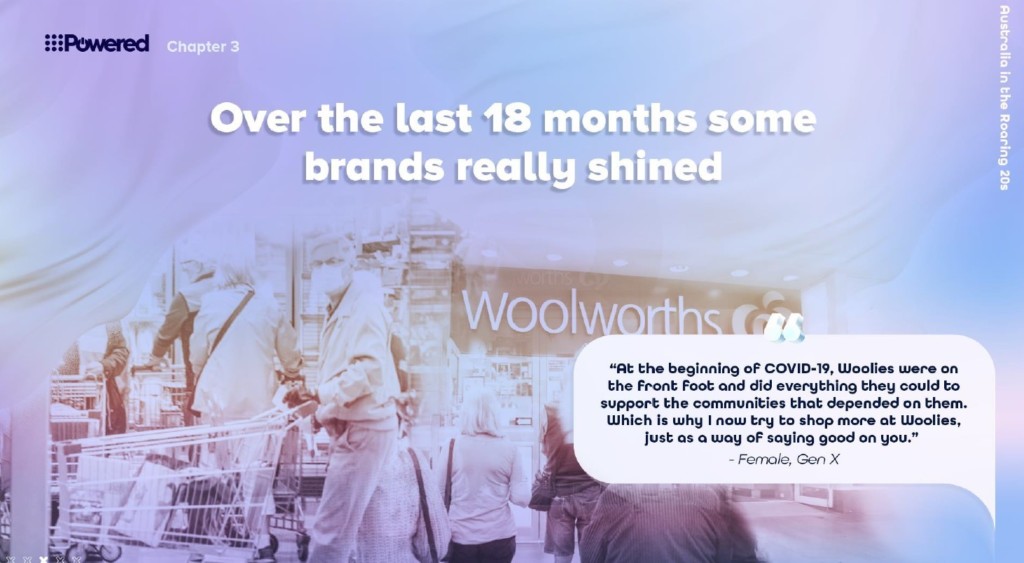
“So, when Woolworths (in COVID) got their deliveries working, when they had community hours. Or Coles was doing that it gave them a lot of credibility. That became even more important in regional communities.
The Powered by Nine and Fiftyfive5 research also found that not only are Australian consumers now more conscious of the need for brands to live up to the ideals of social responsibility, they also have a increasingly low tolerance for behaviour considered to be ‘substandard’.
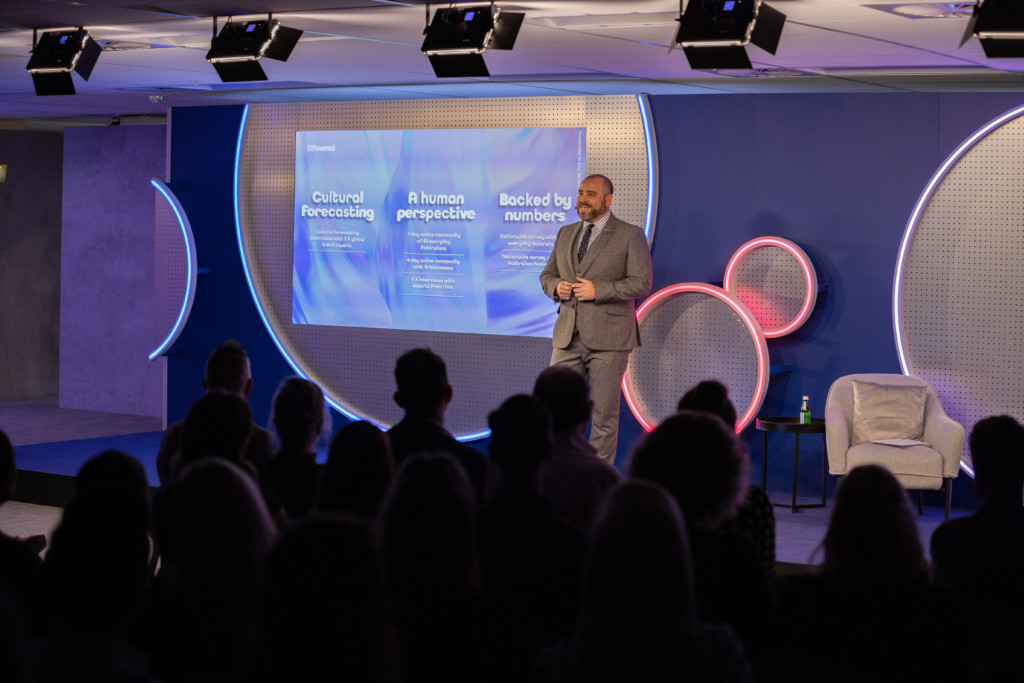
Fellow panelist Russel Howcroft, the host of 3AW Breakfast and panellist, agreed, arguing that the era where brands only paid lip service to ideas like corporate purpose was over.
“All brands and businesses need to recognise that we are at the beginning of a very big social change,” said Howcroft. “This is why purpose matters, I used to be very cynical and I thought it was something that the advertising industry had created in order to write a proposition, in order to write better advertising.
“I don’t have that cynical perspective anymore now. It is the fundamental seed of all businesses of the future. They have to have a core purpose that they fundamentally believe in and that they then get their staff, their colleagues to believe in and then that belief leaches out into the marketplace.
“It is no longer good enough to promote an idea, you have to live and breathe it.”
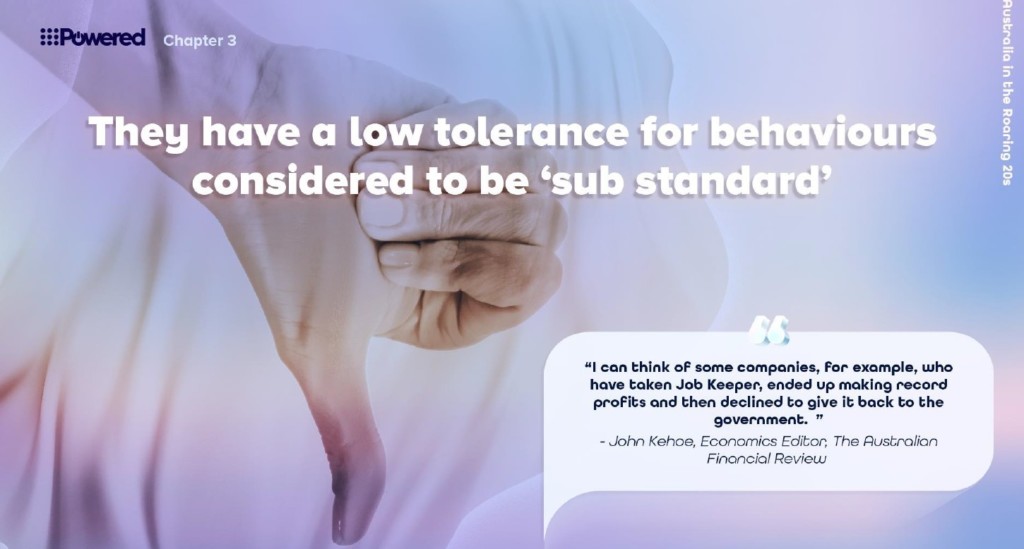
Krijnen said an idea like corporate purpose was too often over complicated and framed within corporate social responsibility (CSR).
“I think purpose is a difficult word because you say purpose and immediately you can see people jumping to CSR and lots of different social issues. I don’t think that’s what this is about for people,” she said.
“What we hear people talking about is ‘I want to know why you are here?’, ‘Why are you in business?’, ‘What is it you want to offer and will you follow it through in everything that you do?’. It’s not that every business needs to have a stance on climate change, gender, homosexuality and everything. There are brands that have very clear purposes, that purpose is very focused and its when you follow that through and look at how that impacts the community that matters. Because it’s about more than just your individual relationship with the end customer.
Moderator Toby Boon, Nine’s Director of Strategy, Insights & Effectiveness, asked the panel if there was a generational difference in attitudes, pointing to how the research highlighted that the majority of people expected both sustainability and support of local communities from brands they deal with.
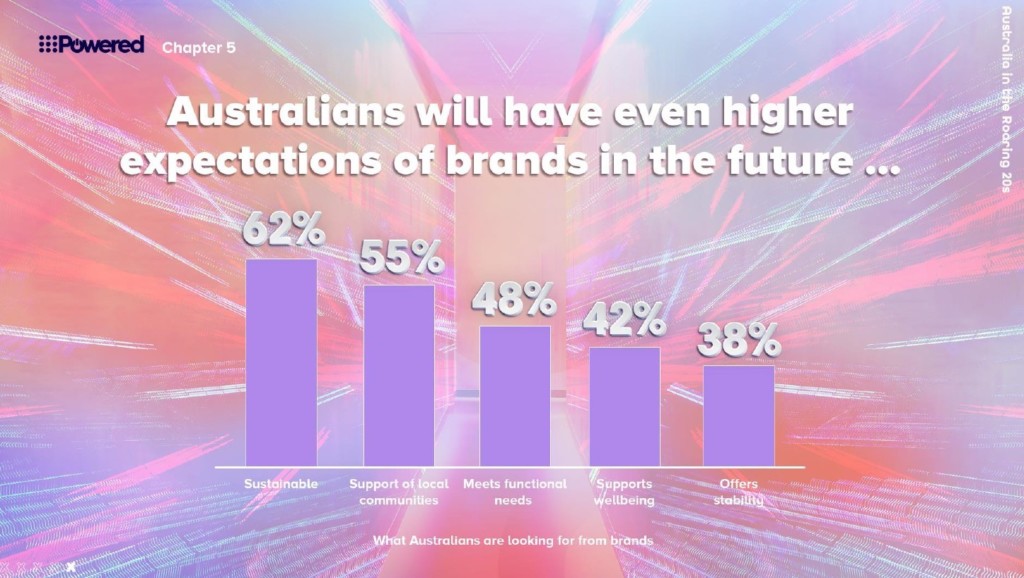
“Of course,” said Krijnen “The big difference is Gen Z. They have expected this sense of purpose and role in the community for a long time. It’s not a benefit, its not something you do that you charge more for. It’s a question of if you are going to be a good brand in this world you have to know why you are here and act on it. Gen Z are driving the change but Baby Boomers are starting to catch up now.”
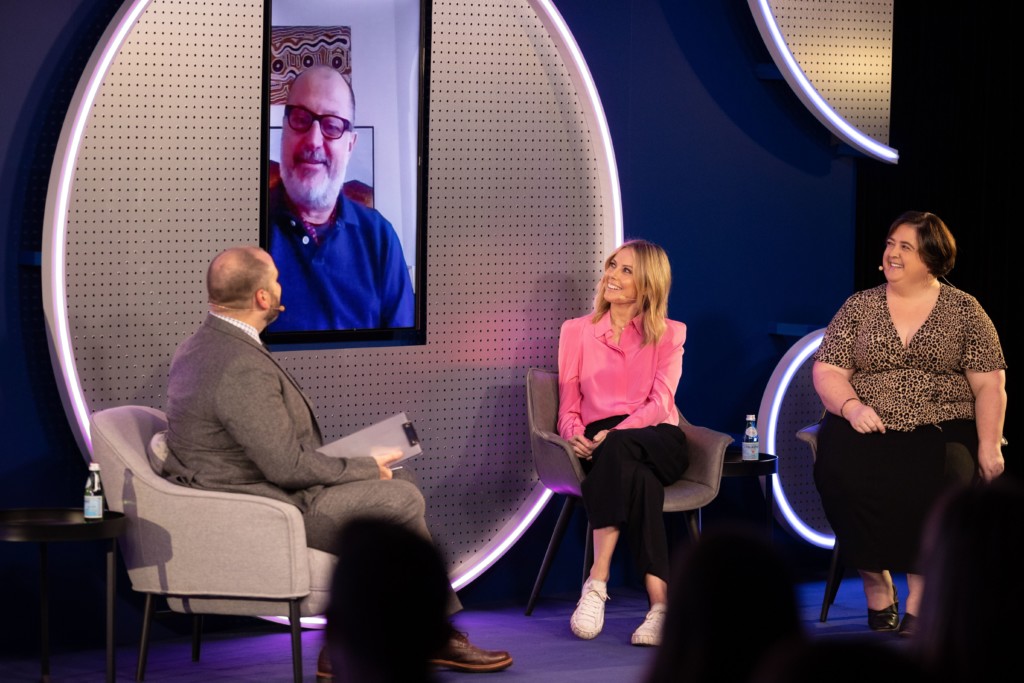
Allison Langdon, Presenter, Nine
Hannah Krijnen, Director, Fiftyfive5
Panellist Allison Langdon argued there was a simpler of viewing this generational divide.
“Do you think it’s a simple as the difference in the generations is that Gen Z want to change the world and for Baby Boomers it’s more about the community and keeping the community safe?,” said Langdon
“I think that’s a really nice way of looking at it,” responded Krijnen. “In the research we had this clear shift in the Gen Z responses and it’s the hope that they can enact change and they can tackle these wicked problems.”
“Gen Z are very community focused. They are going to behave very differently as they go through life and their community will be very important,” said Howcroft.






